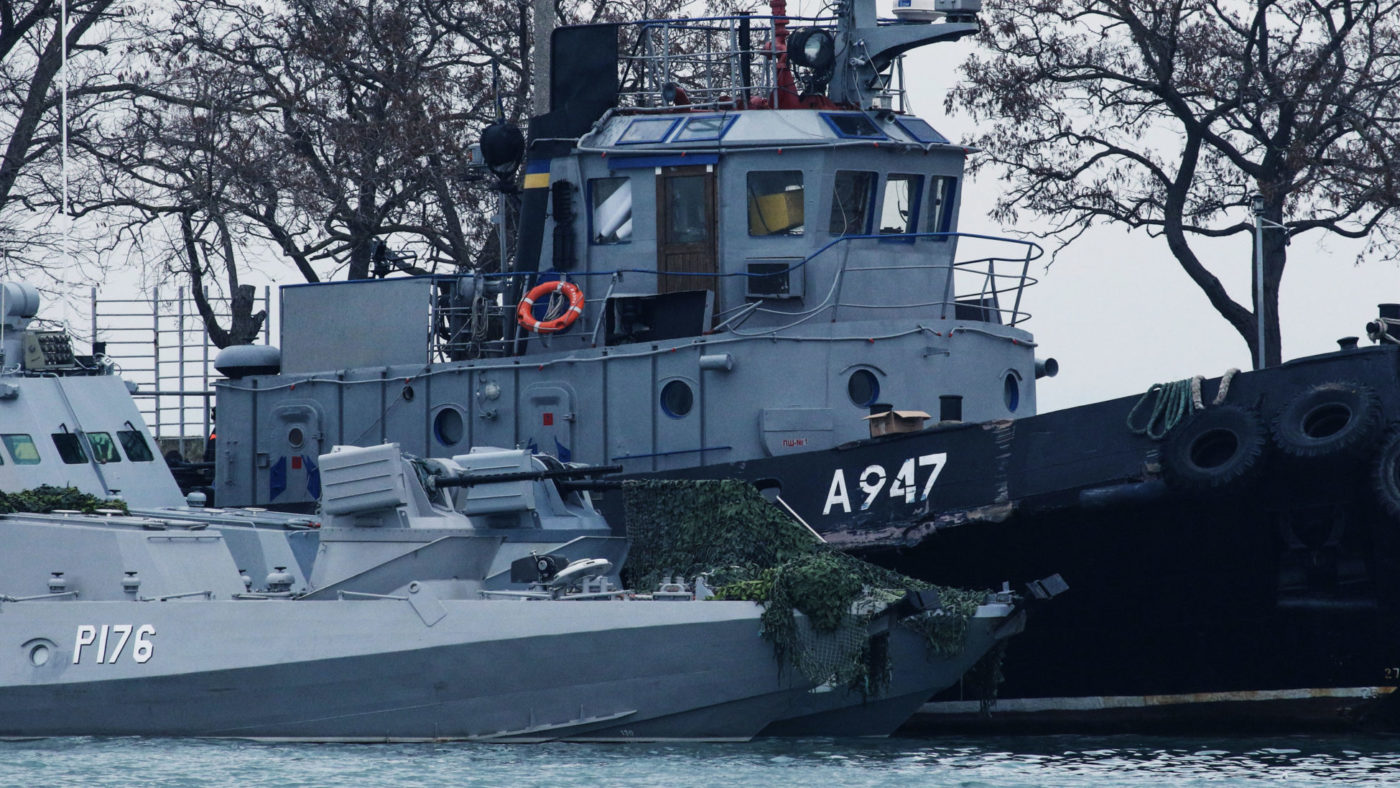On Sunday, Russian ships fired on three Ukrainian naval vessels as they passed through the Kerch Strait, a sliver of water that separates Russia from Russian-occupied Crimea. The vessels, which had left the Ukrainian port of Odessa and were heading for the Ukrainian port of Mariupol, were seized, along with 23 crew members. They had every right to be there – a 2003 treaty, agreed by Kiev and Moscow, guarantees the right of both countries to use the water between the Black Sea and the Sea of Azov.
While some of the details of what happened are still emerging, the big picture is clear: Russia’s war on Ukraine rages on. It is a war that has claimed over 10,000 lives, almost a third of them civilians, since 2014. It is the bloodiest war in Europe since those in the Balkans in the 1990s. And it is one of the longest-running wars in Europe in almost a century.
Russia’s war on Ukraine has been fought on land, but there has long been a maritime front almost from the start. Since 2015, Russia has been reasserting its control over the Sea of Azov. This was the year that the Kremlin began the unlawful construction of a long-anticipated bridge across the Kerch Strait – connecting Russia to illegally-occupied Crimea. The bridge is just 33 metres high and was designed to reduce the flow of shipping into and out of the Sea of Azov.
Earlier this year, Russia redeployed several warships from the Caspian Sea to the Sea of Azov. These pose a clear military threat to Ukraine, giving Russia the ability to strike Ukrainian positions from offshore. And they pose a clear economic threat: Russia could blockade all of Ukraine’s ports. Given that most of Ukraine’s exports leave by sea, this would cause significant damage to Ukraine’s struggling economy.
Tensions have been building for months in the Sea of Azov, with escalating Russian harassment and mischief making. There have, over the same period, been a number of clashes in the water around Crimea, and Sunday’s attack may simply be a reminder that Russia will not end its illegal occupation of the peninsula. But there are also various political backdrops to the incident.
In Russia, there is frustration at the country’s slowing economy, and the summer and autumn saw widespread protests against changes to its pension laws. Recent polls have showed a drop in levels of public trust in Vladimir Putin, from 59 per cent last November to 39 per cent this September. His lowest-ever rating came in August 2013, when just 30 per cent of Russians said he was a trusted politician.
In Ukraine, Petro Poroshenko is standing for re-election as president in March 2019. His campaign has focused on national security; a platform that is severely undermined by Russia’s actions. On Monday, Poroshenko – now far behind in the polls – won approval from parliament to impose a 30-day period of martial law in part of the country. It appears that this just includes military mobilisation, but there are already concerns that he might use these powers to meddle with the elections.
In the West, both the UK – which has been one of the strongest voices internationally on Russia over recent years, and the EU are preoccupied with Brexit. In the US, meanwhile, the White House is still coming to terms with the midterm elections and what this means for the investigation into President Trump’s past ties to Russia. Even before the elections, however, the White House had not shown much diplomatic interest in Ukraine – it was barely on the agenda at the Helsinki summit in July – even if it has been more forthcoming than the Obama Administration with military assistance for Kiev.
The West’s response to Russia’s actions on Sunday has been mixed. Canada was straightforward in condemning Russia’s aggression. But others called for restraint from both Kiev and Moscow. The EU foreign affairs spokeswoman Maja Kocijančič urged “all [parties] to act with utmost restraint to de-escalate the situation immediately”. This suggests there is equivalence of responsibility between the two sides, which there is not. What happened on Sunday appears to be a clear case of unprovoked Russian aggression, just like Russia’s annexation of Crimea and invasion of eastern Ukraine.
Whatever the reason for the attack, the lesson the Kremlin will take from this is that the West is divided and distracted.


